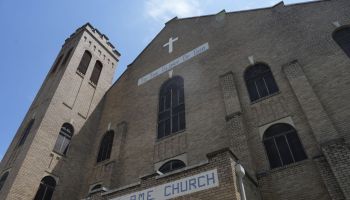RALEIGH – For North Carolina, the Civil War officially began in the State Capitol. On May 20, 1861, delegates from across the state adopted the Ordinance of Secession in the House of Commons, officially withdrawing the state from the Union. This event followed months of tense debate between Unionists and Secessionists, slavery advocates and abolitionists.
A new exhibit, Crisis at the Capitol: North Carolina on the Eve of War, explores what the State Capitol was like on the eve of the conflict and introduces visitors to many of the individuals working and living here in a time before secession and before the war. The exhibit opens Sept. 17 and will remain on display through May 13, 2011. Admission is free.
The exhibit is based on documents left behind by 11 different people, each with a different perspective on the impending crisis. Visitors will learn the stories of John Copeland, a Raleigh native who participated in John Brown’s infamous raid on Harpers Ferry, Va.; Harriet Jacobs, once enslaved in Edenton, who escaped and became active in the abolition movement; and John Thomas Jones, a student at the University of North Carolina who supported secession and enlisted in the army despite of his father’s Unionist views. The viewpoints of President Abraham Lincoln, N.C. Governor John Ellis, and famed abolitionist author and Mocksville native Hinton Rowan Helper are also highlighted.
The State Capitol’s mission is to preserve and interpret the history, architecture and functions of the 1840 building and Union Square. The State Capitol is at One Edenton Street, Raleigh, NC 27601. Visit www.nchistoricsites.org/capitol/default.htm or call (919) 733-4994 for more information.
Administered by the Division of State Historic Sites, the State Capitol is part of the N.C. Department of Cultural Resources, the state agency with the mission to enrich lives and communities, and the vision to harness the state’s cultural resources to build North Carolina’s social, cultural and economic future. Information is available 24/7 at www.ncculture.com.















